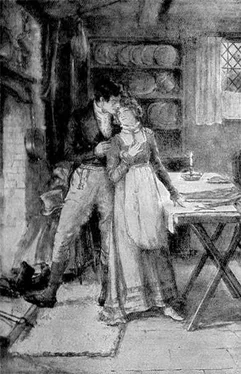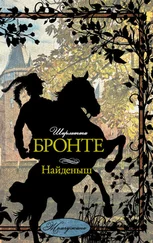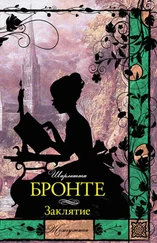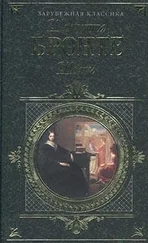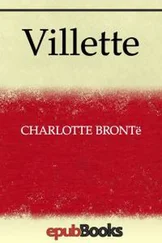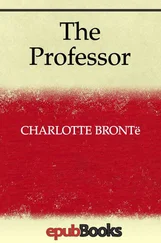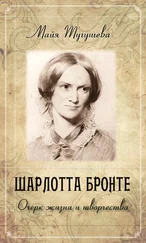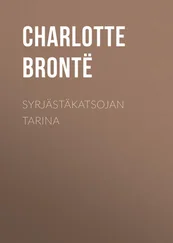"But the vision, sir?"
"Davy, thou shalt hear. Donne is biting his nails, and Malone yawning, so I will tell it but to thee. Mike is out of work, like many others, unfortunately. Mr. Grame, Sir Philip Nunnely's steward, gave him a job about the priory. According to his account, Mike was busy hedging rather late in the afternoon, but before dark, when he heard what he thought was a band at a distance—bugles, fifes, and the sound of a trumpet; it came from the forest, and he wondered that there should be music there. He looked up. All amongst the trees he saw moving objects, red, like poppies, or white, like may–blossom. The wood was full of them; they poured out and filled the park. He then perceived they were soldiers—thousands and tens of thousands; but they made no more noise than a swarm of midges on a summer evening. They formed in order, he affirmed, and marched, regiment after regiment, across the park. He followed them to Nunnely Common; the music still played soft and distant. On the common he watched them go through a number of evolutions. A man clothed in scarlet stood in the centre and directed them. They extended, he declared, over fifty acres. They were in sight half an hour; then they marched away quite silently. The whole time he heard neither voice nor tread—nothing but the faint music playing a solemn march."
"Where did they go, sir?"
"Towards Briarfield. Mike followed them. They seemed passing Fieldhead, when a column of smoke, such as might be vomited by a park of artillery, spread noiseless over the fields, the road, the common, and rolled, he said, blue and dim, to his very feet. As it cleared away he looked again for the soldiers, but they were vanished; he saw them no more. Mike, like a wise Daniel as he is, not only rehearsed the vision but gave the interpretation thereof. It signifies, he intimated, bloodshed and civil conflict."
"Do you credit it, sir?" asked Sweeting.
"Do you, Davy?—But come, Malone; why are you not off?"
"I am rather surprised, sir, you did not stay with Moore yourself. You like this kind of thing."
"So I should have done, had I not unfortunately happened to engage Boultby to sup with me on his way home from the Bible Society meeting at Nunnely. I promised to send you as my substitute; for which, by–the–bye, he did not thank me. He would much rather have had me than you, Peter. Should there be any real need of help I shall join you. The mill–bell will give warning. Meantime, go—unless (turning suddenly to Messrs. Sweeting and Donne)—unless Davy Sweeting or Joseph Donne prefers going.—What do you say, gentlemen? The commission is an honourable one, not without the seasoning of a little real peril; for the country is in a queer state, as you all know, and Moore and his mill and his machinery are held in sufficient odium. There are chivalric sentiments, there is high–beating courage, under those waistcoats of yours, I doubt not. Perhaps I am too partial to my favourite Peter. Little David shall be the champion, or spotless Joseph.—Malone, you are but a great floundering Saul after all, good only to lend your armour. Out with your firearms; fetch your shillelah. It is there—in the corner."
With a significant grin Malone produced his pistols, offering one to each of his brethren. They were not readily seized on. With graceful modesty each gentleman retired a step from the presented weapon.
"I never touch them. I never did touch anything of the kind," said Mr. Donne.
"I am almost a stranger to Mr. Moore," murmured Sweeting.
"If you never touched a pistol, try the feel of it now, great satrap of Egypt. As to the little minstrel, he probably prefers encountering the Philistines with no other weapon than his flute.—Get their hats, Peter. They'll both of 'em go."
"No, sir; no, Mr. Helstone. My mother wouldn't like it," pleaded Sweeting.
"And I make it a rule never to get mixed up in affairs of the kind," observed Donne.
Helstone smiled sardonically; Malone laughed a horse–laugh. He then replaced his arms, took his hat and cudgel, and saying that "he never felt more in tune for a shindy in his life, and that he wished a score of greasy cloth–dressers might beat up Moore's quarters that night," he made his exit, clearing the stairs at a stride or two, and making the house shake with the bang of the front–door behind him.
The evening was pitch dark: star and moon were quenched in gray rain–clouds—gray they would have been by day; by night they looked sable. Malone was not a man given to close observation of nature; her changes passed, for the most part, unnoticed by him. He could walk miles on the most varying April day and never see the beautiful dallying of earth and heaven—never mark when a sunbeam kissed the hill–tops, making them smile clear in green light, or when a shower wept over them, hiding their crests with the low–hanging, dishevelled tresses of a cloud. He did not, therefore, care to contrast the sky as it now appeared—a muffled, streaming vault, all black, save where, towards the east, the furnaces of Stilbro' ironworks threw a tremulous lurid shimmer on the horizon—with the same sky on an unclouded frosty night. He did not trouble himself to ask where the constellations and the planets were gone, or to regret the "black–blue" serenity of the air–ocean which those white islets stud, and which another ocean, of heavier and denser element, now rolled below and concealed. He just doggedly pursued his way, leaning a little forward as he walked, and wearing his hat on the back of his head, as his Irish manner was. "Tramp, tramp," he went along the causeway, where the road boasted the privilege of such an accommodation; "splash, splash," through the mire–filled cart ruts, where the flags were exchanged for soft mud. He looked but for certain landmarks—the spire of Briarfield Church; farther on, the lights of Redhouse. This was an inn; and when he reached it, the glow of a fire through a half–curtained window, a vision of glasses on a round table, and of revellers on an oaken settle, had nearly drawn aside the curate from his course. He thought longingly of a tumbler of whisky–and–water. In a strange place he would instantly have realized the dream; but the company assembled in that kitchen were Mr. Helstone's own parishioners; they all knew him. He sighed, and passed on.
The highroad was now to be quitted, as the remaining distance to Hollow's Mill might be considerably reduced by a short cut across fields. These fields were level and monotonous. Malone took a direct course through them, jumping hedge and wall. He passed but one building here, and that seemed large and hall–like, though irregular. You could see a high gable, then a long front, then a low gable, then a thick, lofty stack of chimneys. There were some trees behind it. It was dark; not a candle shone from any window. It was absolutely still; the rain running from the eaves, and the rather wild but very low whistle of the wind round the chimneys and through the boughs were the sole sounds in its neighbourhood.
This building passed, the fields, hitherto flat, declined in a rapid descent. Evidently a vale lay below, through which you could hear the water run. One light glimmered in the depth. For that beacon Malone steered.
He came to a little white house—you could see it was white even through this dense darkness—and knocked at the door. A fresh–faced servant opened it. By the candle she held was revealed a narrow passage, terminating in a narrow stair. Two doors covered with crimson baize, a strip of crimson carpet down the steps, contrasted with light–coloured walls and white floor, made the little interior look clean and fresh.
"Mr. Moore is at home, I suppose?"
"Yes, sir, but he is not in."
Читать дальше
